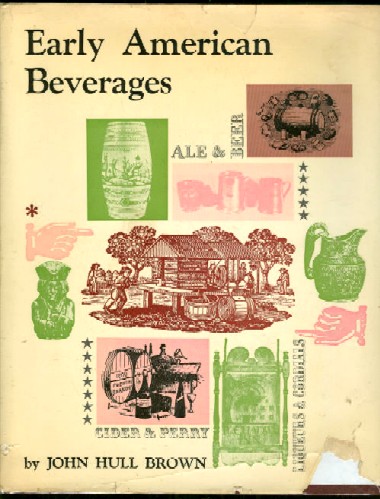The Virtues of Coffee
I have this really cool book called “Early American Beverages”, by John Hull Brown.

It is filled with interesting little tidbits about various drink concoctions. Some of them sound quite strange and so very out of touch with today’s information.
However, one of the articles the book quotes is from a cookbook called “Family Receipt Book” (yes that is the way it is spelled). Published in 1819, and discussing a newly discovered drink.
I’m quoting word for word:
VIRTUES OF COFFEE: Coffee accelerates digestion corrects crudities, removes colic and flatulencies. It mitigates headaches, cherishes the animal spirits, takes away listlessness and languor, and is servicable in all obstructions arising from languid circulation. It is a wonderful restorative to emaciated constitutions, and highly refreshing to the studious and sedentary.
The habitual use of coffee would greatly promote sobriety being in itself a cordial stimulant; it is a most powerful antidote to the temptations of spirituous liquors.
It will be found a welcome beverage to the robust labourer, whou would despise a lighter drink.
Family Receipt Book then follows this glowing praise for coffee with a recipe for its preparation:
FOR IMPROVING COFFEE: To valetudinarians and others, the following method of making coffee for breakfast is earnestly recommended as a most wholesome and pleasant jentacular beverage, first ordered by an able physician.
Let one ounce of fresh ground coffee be put into a clean coffee-pot, or other proper vessel well thinned: pour a pint and a quarter of boiling water upon it, set it on the fire, let it boil thoroughly, and afterwards put by to settle; this should be done on the proceeding night, and on the following morning pour off the clear liquor; add to it one pint of new milk; set it again over the fire, but do not let it boil. Sweetened to every person’s taste, coffee thus made is a most wholesome and agreeable breakfast, summer or winter, with toast, bread and butter, rusks, biscuits, & c. This process takes off that raw, acidous, and astringent quality of the coffee, which makes it often disagree with weak stomachs. It should not be drank too warm.
A gentleman of the first fortune in the kingdom, after a variety of medical applications in vain, was restored to health by applying to the above beverage morning and afternoon.

This is hilarious!
What does “cherishes the animal spirits” mean, I wonder?
Deborah responds: I wonder that too. Some really strange language.
Well, Deborah, did you try the receipt? If so, please tell us the result? Good? And..what,pray tell, is a “well-thinned” vessel?
Deborah responds: LOL, Jane. I don’t pretend to be able to translate, I just copied it, word for word.
I love the writing style of the period…so very civilized. Such a cute post.
Interesting Deborah, I don’t drink coffee myself, but with these tips, maybe I’ll try.
What an interesting book and post this is… I am not sure if I am one of the valetudinarians of the jentacular beverage, but I sure like my coffee in the morning. 🙂
Deborah responds: tee hee, Eden!
Wait until tomorrow’s post.
Great book! I would be curious to hear how the coffee tastes after following the instructions if anyone ever gives it a try. I saw a documentary on the history of coffee a while ago. It was quite interesting.